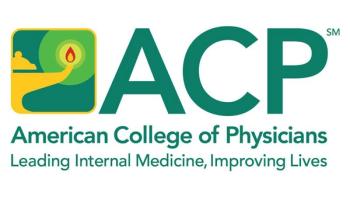
Retina Fellows Forum: Do you live to work or work to live?
John T. Thompson, MD, FASRS, shares pearls for navigating the diverse landscape of career paths in ophthalmology as the Distinguished Guest Speaker at the 24th Annual Retina Fellows Forum.
John T. Thompson, MD, FASRS, sat down with Modern Retina Group Editorial Director Sheryl Stevenson to share pearls for navigating the diverse landscape of career paths in ophthalmology as the Distinguished Guest Speaker at the 24th Annual Retina Fellows Forum.
Video Transcript
Editor's note - This transcript has been edited for clarity.
Sheryl Stevenson: We are joined today by Dr. John Thompson, who will be the Distinguished Guest Speaker at this year's Retina Fellows Forum in Chicago. Welcome to you! So delighted to have you. These days there's so much passion and innovation in ophthalmology, which really makes your title of your talk so intriguing, 'How to find your forever job and avoid a nightmare job.' Can you tell us about your talk at this year's meeting?
John T. Thompson, MD, FASRS: Sure, happy to! One of the important things to remember in looking for a job...and I'll be speaking to the fellows, these are second-year retina fellows...I've certainly had experience myself. I'm on my third job since finishing my chief residency at Wilmer [Eye Institute].
And so I've learned from each of those jobs about the good and the bad. And I've also talked to other people. It's sort of a passion of mine to say, how do you find the ideal job. And I will say at the outset that there are no perfect jobs but there are a lot of not-so-good jobs out there. And really, the goal of the fellows and graduating ophthalmologists should be how to avoid one of those nightmare jobs where it sort of looks great at the outset. And then you realize a couple years into it that this is not going to work out and you're trying to figure out how do I get out of here?
So in talking about it, I think first you have to take a big step back and take the 30,000-foot view. And instead of saying, I want to find the perfect job, you have to ask yourself, what are your goals and priorities? Because the perfect job for one person is not for another person. And so you really need to be brutally honest about what makes you tick. Do you live to work, or do you work to live? People fall into both of those categories.
If you live to work, you'll probably be very successful and you'll have a high-powered job, but you're going to sacrifice some of your personal life in doing so. On the other hand, if you work to live you may have a wonderful lifestyle, good hours, and whatever. But your career may not be as satisfying, or you may not have as good of a career because you're not devoting as much time and passion to that part of your life.
So another important question is how important is financial or academic success to your self-image. Some of the people—I was in academics initially—and some people thrive on the titles and the prestige of being in an academic institution. And that's good for those people. And if it makes them happy, by all means, that's where they should be. But there are other people where that doesn't really matter. What matters more is just their day-to-day life and other priorities that they may have.
And the third important thing is how important is having control over your job and your personal life because some jobs give you a lot of control. Clearly, if you're in solo practice, you have a huge amount of control, or perhaps a small group. But there are other jobs where you're in a big corporation or big entity, and you have very little control in that situation. And so if having control is very important, then you need to gravitate toward a job that will give you that control.
And, again, part of this 30,000-foot discussion is what are the responsibilities you have to yourself and what about your family if you have one. A job that may be great when you're single may not be realistic when you have a family and you're married. So there are jobs that may be better at one part of your life than another part of your life.
What sort of jobs are out there? I've broken it down into I think all of the major categories, and one possibility is a solo private practice. You are your own boss.
There's also administrative positions, but virtually nobody goes immediately into an administrative position. This might be a department chair of an ophthalmology department or hospital administrator, or insurance executive. And those are jobs that you get later on in your career. So I'm not really going to talk about those. But then there are various clinical practice options and one in the retina community is a retina-only private group.
Another would be an academic faculty position where you're part of a university but you'll be in a particular retina section in that...multispecialty private ophthalmology groups where they cover all the specialties but you're one of several people that are in the retina arena. There's also private equity-owned retina only or ophthalmology groups. And this is a relatively newer entry onto the scene, multispecialty groups like say an HMO or a clinic or working for a hospital.
And another option is to be what I call an itinerant subspecialist, where you don't really have a home office, but you go into a number of other offices and serve your specialty—in our case, retina—in those various offices, but you avoid certainly the overhead of having your own office.
And then another option is to work for an optometric group. And there are certainly some of our colleagues that work for optometric groups, and they're the ophthalmologist or perhaps a retina specialist in that group.
And another consideration is are you going to be stepping into a busy practice. Are you replacing somebody, somebody maybe that's moved to another job or retired, or are you going to build a practice from scratch where you're their first retina specialist or you are in a situation where you've hung out your own shingle.
And you have to adjust to the fact if you're going to be starting in a busy practice that the person who left left for a reason...maybe it was retirement, but maybe there are problems and skeletons in the closet that caused that person to leave. If you start a practice from scratch, then you have to be prepared not to be very busy initially. And after the intensity of college, medical school, residency fellowship where you're used to being very busy, it can be hard for some people to manage literally waiting for a patient to walk in the door because you're starting from scratch.
I will say that I would encourage people not to disregard the possibility of starting a solo private practice because of all of the various possibilities it's the practice you're least likely to leave. So there is stability when you start your private practice and very few people fail at that.
So if you join an existing practice, and this is what a majority of the fellows will do, it's certainly much less anxiety provoking than starting your own practice from scratch. However, the interpersonal dynamics in the practice are largely going to determine whether you're happy and when you will stay. You're not going to have as much control over your life and based on Academy [American Academy of Ophthalmology] statistics, there's about a 50% chance you're going to leave that first job.
So some of the things to consider when choosing your colleagues is to really look very closely when you interview to look at what sort of lifestyles they lead—not only the senior people who may have cushier lifestyles, but also, how are the junior people. Are they working like dogs or do they enjoy the same lifestyle. How many patients do they expect you to see... do they expect you to see 40 patients a day, or 60 or 80 patients a day? Do they want you to work 4, 5, or 6 days per week? Do they want you to work evenings because some offices have evening hours. When do they finish with seeing patients? Many of our colleagues work hard during the day, and then they spend their evening hours taking care of the medical records. Will they help you build the practice, and perhaps even assist you in the operating room for the first couple of months.
So these are the types of things that you need to look at when you're evaluating a potential practice. I think it's very important to watch the partners or senior doctors see their patients, how do they interact with patients. Is it a practice where they're rushing patients in and out, or are they spending time with the patients. If you're somebody that wants to spend time with the patient, because that's your style, you may not be happy if it's a practice where patients are getting rushed in and out very quickly.
The physicians will often be on their very best behavior, of course, when you're interviewing with them, but you should observe how the staff members interact. Because if the staff members appeared nervous or scared that's a big red flag for that practice. It's important to speak with anybody who's left the practice, if you're filling in for somebody else.
So these are some of the things to consider [for] each of the practices. I'll kind of close out to talk about some of the pros and cons of different practice types.
With solo practice, the advantage is you are in control and you will benefit if you work hard. You'll benefit from it. The cons is that it can be stressful to be on call for your practice 365 days a year and you never feel like your time is really your own. Small private groups, you still have moderate control over your practice and the associates and partners work closely together so it's not like a big institution type of thing. And there's still a pretty good correlation between work and reward.
But some of the cons is that you're again struggling with higher overhead because you don't have the economies of scale. When one physician is out on vacation or whatever you can really end up being very busy because you're covering for just another doctor in a small group.
The larger private groups have better economies of scale. There's usually a clearly defined practice culture going in. Their internal processes, accounting, and these things are well defined. They're are used to bringing in young associates and getting the young associates up to speed and they can also afford top managers to manage their practice. However, the drawback is that they have less individual control because management centralized...often there's a managing partner or a business manager that pretty much handles everything so the doctors don't have as much control in that situation.
In the university, which I talk a bit about university practices, you do have a better variety of work because you're doing clinical care, teaching, research, administration. You have a built-in referral network because you're in the university. And you also can potentially climb the academic ladder and achieve renown as a expert in your particular field. And if you stay in that academic job for many years, they tend to have better lifestyles once they're one of the senior faculty as opposed to the junior faculty.
But some of the cons for that is a very large bureaucracy with little power to change things. They're certainly much less responsive to your individual needs, and usually a lower total income over your career if you're in academics.
And so these are some of the advantages if you work for a large healthcare system. They actually have very competitive salaries. If you work for like a Kaiser or VA, you have good job security overall and they have good pensions, many of them, good sick time, disability. But some of the cons is that you're going to be a small cog in a very large wheel and the larger departments in such a place such as medicine, pediatrics, or surgery, you're going to have more control. it may be harder to get the newest, greatest equipment in that situation because you're just one of the small departments in that.
So that's a summary of how I look at looking for the job. I think that by all means, think very carefully. The good news about this is that you've acquired valuable skills in your retina fellowship which are going to be in increasing demand as our population ages. The unemployment rate for competent rental specialists is pretty close to zero.
So there are jobs out there, and you can earn a good living overall and certainly retire comfortably if you live below your means for 30-plus years and invest prudently. And so overall, the view is very bright for these graduating fellows. Thank you.
Stevenson: Dr. Thompson, thank you so much for outlining the various options and considerations for these young colleagues as they enter the field. Your insights are so valued, and I'm sure they will benefit from your knowledge and the information you're sharing today.
Newsletter
Keep your retina practice on the forefront—subscribe for expert analysis and emerging trends in retinal disease management.



























